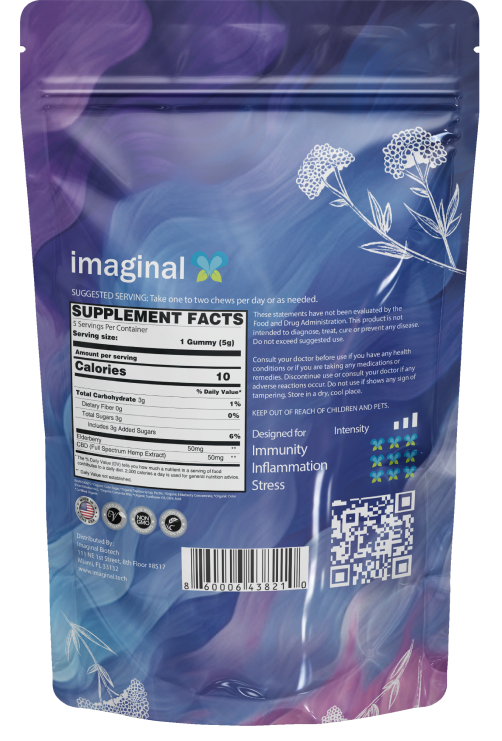Migraine is the sixth most disabling neurological condition in the world. A single episode can last anywhere between 4 hours and 3 days, disrupting career advancement, hindering personal goals, and even straining relationships.
The good news is that CBD has surfaced as a promising solution for migraine pain management in recent times. In some cases, it has even been shown to reduce migraine attacks by 40 percent!
So in this post, we’ll discuss the scientific evidence regarding CBD for migraines. We’ll also cover the risks of using CBD for migraines, the best CBD strains to try out, and how to take CBD for migraines.
What is a migraine?
A migraine is a type of severe headache that causes throbbing and pulsating pain usually on one side of the head. However, it’s much more than just a bad headache. It’s also accompanied by a variety of physical symptoms, including:
- Sensitivity to light, movement, and smells
- Nausea
- Vomiting
- Weakness
A single episode can last from several hours to several days, depending on the type of migraine someone has. The two major types include:
- Migraine with aura (also called complicated migraine)
- Migraine without aura (also known as common migraine)
In migraine with aura, the patient usually experiences sensory disturbances like distorted color perception, flashing lights, and star-like zigzag figures before the headache kicks in. This makes complicated migraine attacks longer than common migraine attacks.
Other migraine types include:
- Hemiplegic migraine
- Retinal migraine
- Chronic migraine
- Migraine with brainstem aura
- Status migrainosus
All of these can be with or without aura. Also, it is worth noting the most disabling type of migraine is chronic migraine, especially when it is accompanied by an aura. It occurs for at least 15 days per month, which means you lose at least 180 days per year to migraine pain.
Can CBD help with migraines?
Unfortunately, science has not fully endorsed CBD as an effective treatment for migraines. But there are a few scientific studies that suggest CBD might have a positive impact on migraines. Examples include:
-
Cannabinoids and Pain: New Insights From Old Molecules
This review in Frontier Pharmacology explored the impact of cannabinoids on pain management. It concluded that cannabinoids are capable of significantly reducing chronic pain. This is particularly true for neuropathic pain — meaning cannabinoids (found in CBD) have a high chance of soothing migraines.
-
Medical Cannabis, Headaches, and Migraines: A Review of the Current Literature
This study from 2021 explores the role of medical cannabis in treating headaches. It lists the results of a survey where medical cannabis exhibited an 86% efficacy for migraine pain relief. Plus, patients who used medical marijuana or CBD products for a long time experienced stable improvements in their overall well-being.
-
The Axon Survey
In addition to these studies, Axon conducted a survey about the effectiveness of CBD for migraines. The company gave CBD isolate to 105 people over a period of 30 days. At the end of the month, chronic migraine sufferers reported a 33% drop in attack frequency. This meant they got only 10 attacks if they were getting 15 earlier.
Plus, those who were heavily dependent on medicines (and were sick of medicinal side effects) found they could count on CBD to control and manage their pain instead of their usual medicines.
So to summarize, there’s still room for research on CBD for migraines. But from the experiments and observations so far, medicinal cannabis can help alleviate migraines.
What are the risks involved when using CBD for migraine?
The following are some risks you should keep in mind when taking CBD for migraines:
Which CBD strain is best for migraine?
Not all cannabis strains are equal. Here are some of the best ones to try out for migraines:
How to take CBD for migraines?
Migraine patients can take CBD in whichever form they prefer. This includes orally, sublingually, via inhalation, or by application of a topical product.
However, since migraine pain tends to intensify with time, it’s a good idea to use CBD sublingually as soon as you notice the earliest sign of the condition. That’s because CBD enters your bloodstream the quickest when you consume it sublingually.
CBD for migraines: final thoughts
So, while CBD for migraines shows promise as a potential breakthrough, solid scientific endorsement is still lacking.
However, several studies suggest that CBD may have a positive impact on migraine pain relief. But remember that it should be used with caution and potential risks should be considered, such as drug interactions and side effects, particularly for individuals with liver damage and pregnancy.
Finally, don’t forget to choose high-quality CBD products from reputable brands due to the lack of strict regulation in the CBD market.




